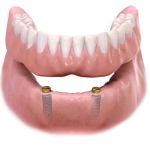SEO Title: Preventing Oral Infections: Key Tips for Healthy Teeth and Gums
SEO Keywords: preventing oral infections, oral health, preventing gum infections, healthy teeth tips, oral hygiene, preventing tooth infections
SEO Description: Learn essential tips for preventing oral infections and maintaining healthy teeth and gums. Discover effective strategies for avoiding gum and tooth infections that can lead to serious oral health issues.
Preventing Oral Infections: Key Tips for Healthy Teeth and Gums
Oral infections are one of the most common dental issues that people face, but the good news is they are preventable. Preventing oral infections requires consistent attention to your oral hygiene routine and healthy habits. Whether it’s gum disease, tooth decay, or other common infections, understanding how to properly care for your teeth and gums is crucial. In this article, we will explore why oral infections occur, the risk factors involved, and most importantly, what you can do to prevent them and ensure that your oral health remains in top condition.
- 1. What Causes Oral Infections?
- 2. Key Strategies for Preventing Oral Infections
- 3. The Importance of Regular Dental Checkups
- 4. Proper Brushing and Flossing Techniques
- 5. Diet and Lifestyle Changes to Improve Oral Health
- 6. Common Symptoms and Signs of Oral Infections
1. What Causes Oral Infections?
Oral infections are typically caused by bacteria that thrive in your mouth, especially in the presence of plaque and food particles. These bacteria can cause a variety of oral health issues, including cavities, gum disease, and tooth abscesses. The most common culprits are poor oral hygiene, a diet high in sugar, and smoking.
One of the leading causes of oral infections is gum disease (gingivitis and periodontitis). When bacteria accumulate along the gum line, they form plaque, which can harden into tartar if not removed. This buildup of plaque and tartar irritates the gums, leading to inflammation and potential infection.
Other factors, such as poor nutrition, weakened immune systems, and certain medications, can also contribute to an increased risk of oral infections. This highlights the importance of both oral hygiene practices and lifestyle choices in maintaining optimal oral health.
2. Key Strategies for Preventing Oral Infections
Preventing oral infections starts with proper oral hygiene, but there are other essential strategies that can make a significant difference. Here are the most effective prevention methods:
- Brush Twice a Day: Brushing your teeth at least twice a day with fluoride toothpaste helps remove plaque and prevent bacteria buildup.
- Floss Daily: Flossing is critical for removing food particles and plaque between your teeth that a toothbrush cannot reach.
- Use Mouthwash: A good mouthwash can help kill bacteria, reduce plaque, and freshen your breath.
- Stay Hydrated: Drinking water helps rinse away food particles and bacteria from your mouth, reducing the chances of infection.
- Avoid Smoking: Smoking is linked to gum disease and oral infections. Quitting smoking can significantly improve your oral health.
3. The Importance of Regular Dental Checkups
Even if you maintain an excellent oral hygiene routine, regular dental checkups are essential for preventing oral infections. During these visits, your dentist will be able to detect early signs of gum disease, cavities, and other issues before they become serious. Dentists can also professionally clean your teeth, removing plaque and tartar that you may have missed during brushing and flossing.
Regular checkups provide an opportunity for your dentist to give tailored advice on improving your oral health, including personalized tips on brushing techniques, products, and more. A proactive approach through regular checkups will help catch potential infections before they develop into painful and costly issues.
4. Proper Brushing and Flossing Techniques
While brushing and flossing are the cornerstone of good oral hygiene, doing them incorrectly can still leave your mouth vulnerable to infection. Let’s break down the best practices for both:
- Brushing: Use a soft-bristled toothbrush and brush for at least two minutes, making sure to brush all surfaces of your teeth, including the backs, fronts, and chewing surfaces. Don’t forget your tongue, as it can also harbor bacteria.
- Flossing: Gently slide the floss between your teeth, curving it into a C-shape against the side of each tooth to remove plaque and debris. Be gentle to avoid injuring your gums.
Proper technique is key to ensuring that bacteria and food particles are effectively removed from your teeth, reducing the risk of infection.
5. Diet and Lifestyle Changes to Improve Oral Health
Your diet plays a major role in your oral health. Foods high in sugar and starch can feed harmful bacteria, leading to plaque buildup and oral infections. On the other hand, a diet rich in vitamins and minerals, such as calcium, vitamin C, and vitamin D, can strengthen your teeth and gums.
Some lifestyle changes can also improve your oral health. For example, quitting smoking and reducing alcohol intake can help lower your risk of gum disease and other oral infections. Ensuring that you get enough rest and managing stress are also important factors in maintaining a healthy immune system, which in turn helps prevent infections.
6. Common Symptoms and Signs of Oral Infections
Recognizing the early symptoms of an oral infection can help prevent it from becoming a serious issue. Some common signs of an oral infection include:
- Red, swollen, or bleeding gums
- Pain or discomfort while chewing or brushing
- Persistent bad breath or a bad taste in your mouth
- Sensitivity to hot or cold foods
- Swelling in the face or jaw
If you notice any of these symptoms, it’s important to visit a dentist promptly to prevent further complications. Early treatment can help keep infections from spreading and causing permanent damage to your teeth and gums.
If you’re looking for more personalized tips or need to schedule an appointment for a professional consultation, visit Dentistry Toothtruth today to get expert advice on maintaining healthy teeth and gums.







 Cary Family Dental4.0 (734 review)
Cary Family Dental4.0 (734 review) St. Bernard Hospital Dental Center3.0 (44 review)
St. Bernard Hospital Dental Center3.0 (44 review) Pinnacle Peak Family Dentistry4.0 (439 review)
Pinnacle Peak Family Dentistry4.0 (439 review) Yonkers Dental Implants Center4.0 (63 review)
Yonkers Dental Implants Center4.0 (63 review) City Dental- Dental Implants and Orthodontics4.0 (40 review)
City Dental- Dental Implants and Orthodontics4.0 (40 review) Dental Dreams4.0 (967 review)
Dental Dreams4.0 (967 review) The Importance of Oral Health Education During Pregnancy for a Healthy Pregnancy
The Importance of Oral Health Education During Pregnancy for a Healthy Pregnancy Best Tips for Brushing Your Teeth Properly for Healthy Gums: Essential Techniques for Oral Health
Best Tips for Brushing Your Teeth Properly for Healthy Gums: Essential Techniques for Oral Health Why Skipping Dental Checkups Can Lead to Bigger Oral Health Problems
Why Skipping Dental Checkups Can Lead to Bigger Oral Health Problems Advantages of Porcelain Dental Restorations
Advantages of Porcelain Dental Restorations How Can Diabetes Cause Tooth and Gum Problems? Preventing and Managing Oral Health Issues
How Can Diabetes Cause Tooth and Gum Problems? Preventing and Managing Oral Health Issues Healthy Habits for Promoting Good Oral Health and Hygiene: Tips for a Healthy Smile
Healthy Habits for Promoting Good Oral Health and Hygiene: Tips for a Healthy Smile